Uncategorized
-
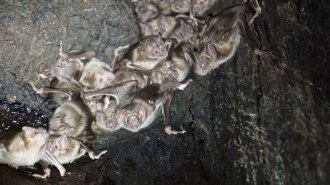 Animals
AnimalsBloodthirsty vampire bats like to drink with friends over strangers
Cooperation among vampire bats extends beyond the roost. New research suggests that bonded bats often drink blood from animals together.
-
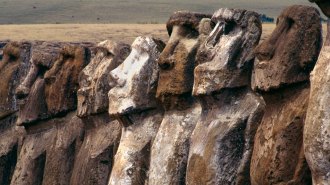 Genetics
GeneticsDNA offers a new look at how Polynesia was settled
Modern genetic evidence suggests that statue builders on islands such as Rapa Nui, also known as Easter Island, had a shared ancestry.
By Bruce Bower -
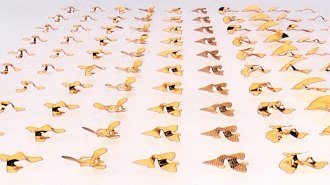 Physics
PhysicsWhirling maple seeds inspired these tiny flying sensors
Scientists envision that small objects modeled after maple tree whirligigs could be used to monitor the environment.
-
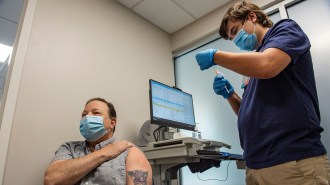 Health & Medicine
Health & MedicineWhy only some people will get COVID-19 booster shots at first
In the United States, boosters may next go to people 65 and older, those at high risk for severe disease and people whose jobs put them at high exposure risk.
-
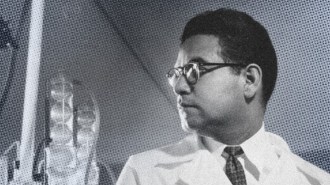 Chemistry
ChemistryLuis Miramontes helped enable the sexual revolution. Why isn’t he better known?
By synthesizing norethindrone, one of the first active ingredients in birth control pills, Luis Miramontes helped usher in the sexual revolution.
By Carmen Drahl -
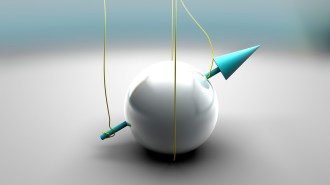 Quantum Physics
Quantum PhysicsOne of nature’s key constants is much larger in a quantum material
The fine-structure constant is 10 times its normal value in the material, giving a peek into what physics in an alternate universe could look like.
-
 Health & Medicine
Health & MedicinePfizer says its COVID-19 vaccine is safe and works well for kids ages 5–11
A lower dose of the vaccine produced as many antibodies in elementary school–age kids as a full-dose shot did in teens and young adults.
-
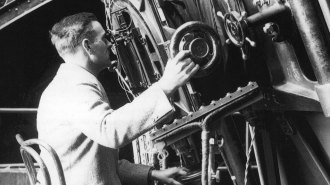 Science & Society
Science & SocietyThe Top 10 scientific surprises of Science News’ first 100 years
In the 100 years since Science News started reporting on it, science has offered up plenty of unexpected discoveries.
-
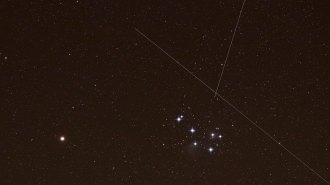 Astronomy
AstronomySatellite swarms may outshine the night sky’s natural constellations
Simulations suggest that satellite “mega-constellations” will be visible to the naked eye all night long in some locations.
-

-

-
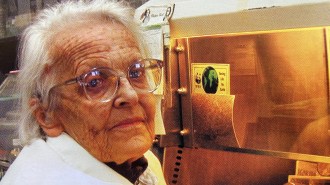 Health & Medicine
Health & MedicineBy taking on poliovirus, Marguerite Vogt transformed the study of all viruses
She pioneered the field of molecular virology with her meticulous lab work and “green thumb” for tissue culture.